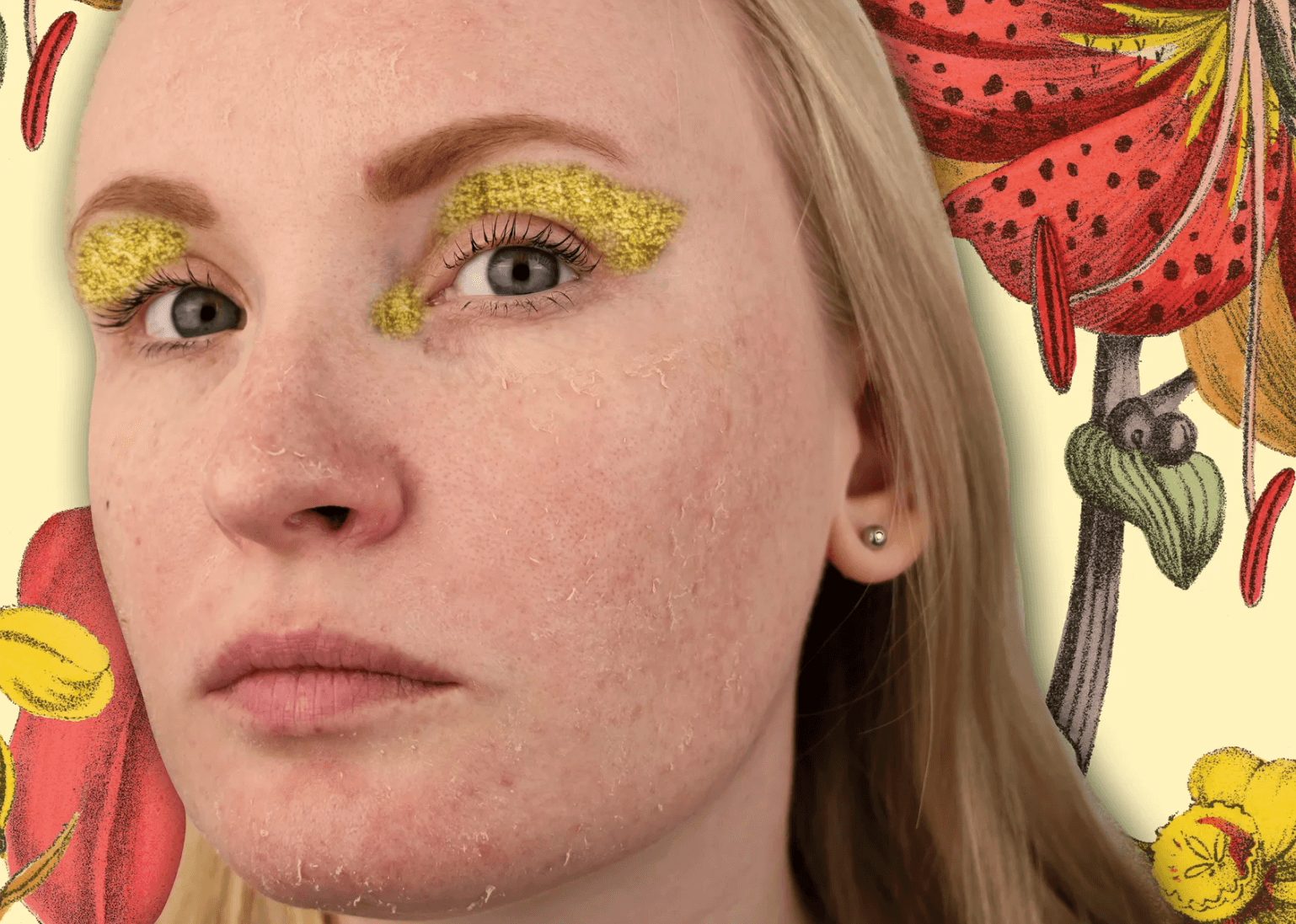
Navigating the World of Skincare, Makeup, and Fashion with Psoriasis
Looking for tips and advice on navigating the world of skincare, makeup, and fashion with psoriasis? Discover how to look and feel your best.
By SunsolveMD Team | 7 Min. Read
May 0, 2023Psoriasis is a chronic autoimmune disease that poses unique physical and emotional challenges. Many people have thick, red, and scaly patches that can be painful, itchy, and unsightly, which makes it difficult to conceal. For those who may need to learn how to apply foundation and concealer without emphasizing the roughness of their patches, the condition can be a significant barrier to feeling stylish and confident.
The constant flaking, scaling, and redness can be uncomfortable and easily irritated. You don't want to make the area look worse than it already does, so taking care of it is important.
If you struggle with psoriasis, it takes some time to figure out the right clothing, makeup, and skincare. This may involve finding clothing that's both fashion-forward and skin-friendly, loose-fitting, breathable, and made from soft, non-irritating fabrics. It also involves using gentle, fragrance-free skincare products and experimenting with makeup and hairstyles that highlight unique features and complement the skin.
Psoriasis affects around 125 million people globally, and of those millions are a growing number of celebrities. From Kim Kardashian to LeAnn Rimes and Jonathan Van Ness, and Cara Delavigne, many have been using their platforms to highlight causes and treatments, reveal their strategies for improving daily life, and promote a positive body image.
Even though there isn't a cure for the condition, getting vocal about it and gaining attention helps to continue chipping away at the stigma. Developing a unique style and expressing yourself through fashion and beauty choices should not be impossible for people with psoriasis. Feeling more comfortable and confident in your skin is a journey worth taking. Ahead everything you need to know about navigating the world of skincare, makeup, and fashion with psoriasis.
Makeup hacks and tricks
There are plenty of tips and tricks to make applying makeup smoother but still effective and gentle enough that it won't further irritate the skin. Follow along for our guide of tips and tricks when applying makeup with psoriasis.
Makeup ingredients to avoid
When looking for psoriasis-friendly makeup, make sure to understand which ingredients are best to avoid so that you can quickly scan a product list and determine if it is safe for you to use.The usual suspects are all out: fragrances, dyes, heavy oils, and alcohol should be avoided since they are known to irritate and dry out the skin.
Applying foundation
It could be tempting to pile on heavy, full-coverage foundation when you wake up to a flush of plaques. But in reality, sticking to fewer products and steps keeps the skin from becoming overly irritated or aggravated during the coverage process.
Look for a sheer and buildable foundation that maintains a good amount of pigment. Just remember that no matter what foundation you choose, the way you apply it is what matters. Use a soft and fluffy brush with synthetic bristles, such as a kabuki or stippling brush. These types of brushes allow the foundation to be applied in thin layers and help to achieve a seamless finish without irritating the skin. Making sure your hands are clean, use your fingers to rebuild thicker layers if needed. Just try and reapply the foundation down in critical areas and then buff any edges with a small brush.
Another option could be to use a makeup sponge. Ensure it's clean and damp before applying it to the skin. This way, you can build up thin layers until you reach your desired coverage. Blend the foundation thoroughly, especially around the hairline and jawline, to avoid visible lines or patches.
If you prefer concealer, look for a product that isn'tmatifying. Once you apply it, let it sit on the surface for a minute as it helps to thicken the formula and provide stronger coverage. Once it's set, blend with a small brush.
What about body coverage?
Psoriasis plaques occur more often on the body than on the face, and today there are many body foundation products to choose from. When scales do occur, it is good to find a product that provides enough coverage but doesn't dry and clog the skin. Dermatologists recommend using a body brush and applying long strokes that help blur imperfections. Gradually build up the coverage in layers, first putting a small amount on the skin, and if you need extra coverage add another layer and tap it with a brush.
How to remove the makeup
When it comes to dealing with psoriasis, taking care of your skin is essential. How you remove your makeup is just as important as how you apply it. Remember that removing your makeup with the wrong products can actually exacerbate your psoriasis. Allure explains that using a gentle cleanser is key. Look to incorporate glycolic acid and salicylic acid products in your routine to help gently remove dry areas and soothe your skin.
Skincare tips for psoriasis
Managing psoriasis will require a comprehensive approach that includes proper skincare. Vogue suggests using hydrating formulas that can help soothe and soften the dry and flaky patches. The right ingredients to look for are glycerin, petrolatum, shea butter, and ceramides. Applying topical treatments, protecting your skin from the sun, and phototherapy can effectively help manage psoriasis symptoms and maintain healthy skin. Consult your dermatologist to determine the best skincare regimen for your individual needs.
Using Gentle Cleansers
Harsh soaps and cleansers can irritate the skin, exacerbating psoriasis symptoms. Soap and fragrance-free cleansers that are gentle on the skin are a must. Try to avoid using hot water as it can strip the skin of its natural oils and flare up psoriasis symptoms.
Applying Topical Treatments
The topical treatments include corticosteroids, vitamin D analogs, and topical retinoids. Your dermatologist will be able to help you determine a suitable topical treatment.
Protecting Your Skin from the Sun
It is crucial to note that sun exposure can worsen psoriasis symptoms. That's why it's essential to protect your skin from the sun by wearing protective clothing such as long-sleeved shirts, hats, and sunglasses. The Psoriasis National Foundation recommends sunscreens that contain zinc oxide or titanium dioxide with an SPF of at least 30 to exposed skin.
Consider Phototherapy
If you have moderate to severe psoriasis, topical treatments may not be an effective solution, and in this case, phototherapy could be the right route. Phototherapy uses ultraviolet light to slow down the rapid growth of skin cells associated with psoriasis. Different types of phototherapy exist, including narrowband UVB, broadband UVB, and PUVA. Consult your dermatologist to determine which type of phototherapy is best for you.
Psoriasis-Friendly Travel Wardrobe
When you have psoriasis, choosing your outfits doesn't need to be a battle between fashion and funcionality. The good news is that you can opt for on-trend, skin-friendly, and style-savvy looks. One of these steps is choosing comfortable clothing that doesn't irritate the skin.
Cotton vs. Synthethics
You probably noticed that your skin is more sensitive to allergens and harsh fabrics. Make sure to steer away from synthetic fabrics and opt for textiles made from natural materials, such as cotton. Because cotton is so breathable, it is less likely to irritate the skin and exacerbate itchiness and inflammation. Consider that cotton is less likely than synthetic materials to cause overheating, which can cause your skin to flare up. This summer, nothing says casual coolness like jeans and a T-shirt, and you can elevate your essentials with a classic trench coat or a luxe loafer. Consider that there are many other alternative natural fabrics, such as bamboo and silk.
Airy long sleeves
As soon as the sun is out, the prospect of wearing long sleeves all year round may initially seem daunting. But consider that sticking to long sleeves has multiple functions: it acts as a barrier to stop you from scratching or picking the skin, protects from sun exposure, and keeps away mosquitos and other biting insects at arm's length. Opt for lightweight and breathable outfits and loose-fitting styles that won't rub against your skin or restrict your movement. A flowy tunic, oversized shirt or kimono can be worn over a tank top or dress to add a stylish touch without feeling constricting.
References
1. The National Psoriasis Foundation
2. How to Apply Makeup to Skin With Psoriasis, According to Makeup Artists
3. Psoriasis Flare-Up? Here Are 8 Skincare Products You Need To Try
